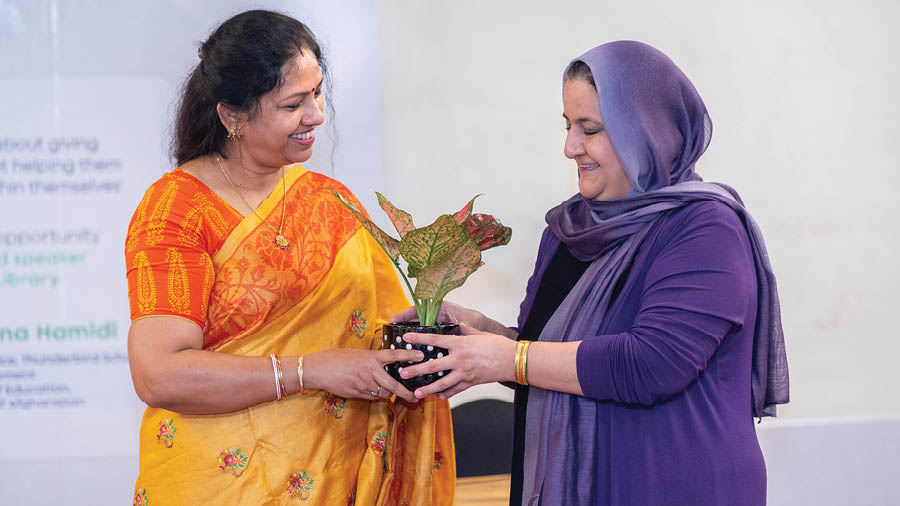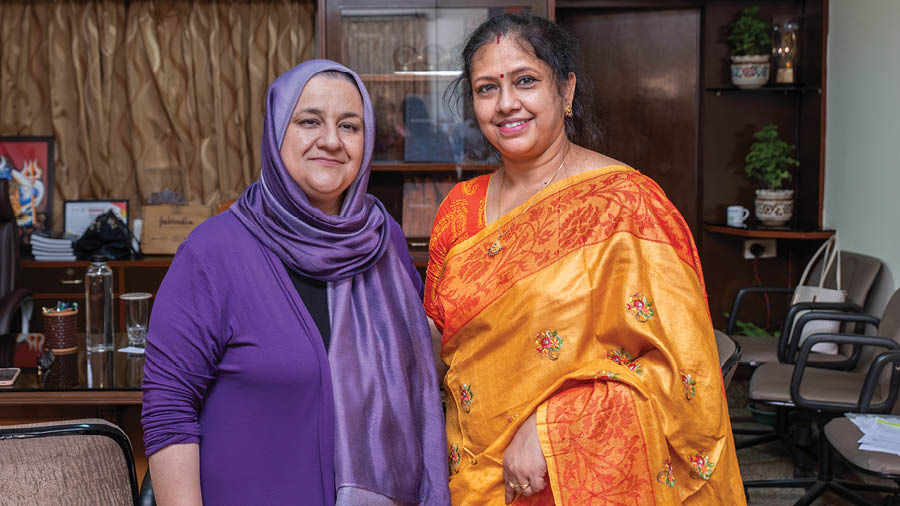Education fosters revolution. No one personifies this better than educator and social activist Rangina Hamidi. The Afghan-American women’s rights activist shared her inspiring journey with students of Techno India University at the second edition of Unwind, as a part of their Human Library on November 20.
In conversation with Prof. Manoshi Roychowdhury, co-chairperson of Techno India Group, Hamidi spoke about her inspiring journey from a young girl in Kandahar to a student in Virginia. Students were in awe of how she returned to her homeland, vowing to help in its transformation.

“It’s not easy being a Rangina, but I have no choice other than being the Rangina that I am, and sharing my story with everybody here,” Hamidi said
As the former leader of Afghanistan’s Education Ministry before the Taliban takeover, Hamidi expressed hope in women from her country finding space to share their experiences with the outside world. “As educators it is our job to question everything we hear and find counterarguments to create a balanced view. Afghanistan is a diverse nation with different languages, religions and experiences. We need to open our minds to know that one person will never represent an entire population of people, and we must educate ourselves on the variety of narratives,” she said, adding that she herself couldn’t represent the totality of experiences that shape an Afghan woman. “I use the global platforms I now have to educate people about the complexities of Afghanistan, which isn’t just my country, but also the country my father sacrificed himself for.”
She also linked how education allows people to see beyond the status quo perpetuated by the media, and critically analyse the definitions of ‘good’ and ‘bad’. She said that the lack of education often contributes towards people being raised with a closed worldview, who risk becoming members of extremist factions like the Taliban.
Hamidi added that the burden of gender roles that women have to carry make it doubly hard for them to complete their education. However, she also found hope in how generations of successful women have found solutions to their problems through resilience. By extension, she indicated how the lack of women in top positions reinforces the cycle. “When young girls don’t see women at the ministerial level in governments or managerial level in companies, they internalise that it isn’t possible for them to rise to those positions too. It’s extremely important for female role models to be present in every sector.”
The mental trauma of Afghanistan’s people was also mentioned, as Hamidi pushed the audience to think about what happens when an entire country loses control and autonomy over their lives for over four decades. “I think the strict adherence to tradition could be because of the lack of stability. When so much is uncertain, people seek comfort in the only thing they know.”
“The session today emphasised on how women need to speak up for themselves, because only then will men listen and help in making a difference,” concluded Roychowdhury.
